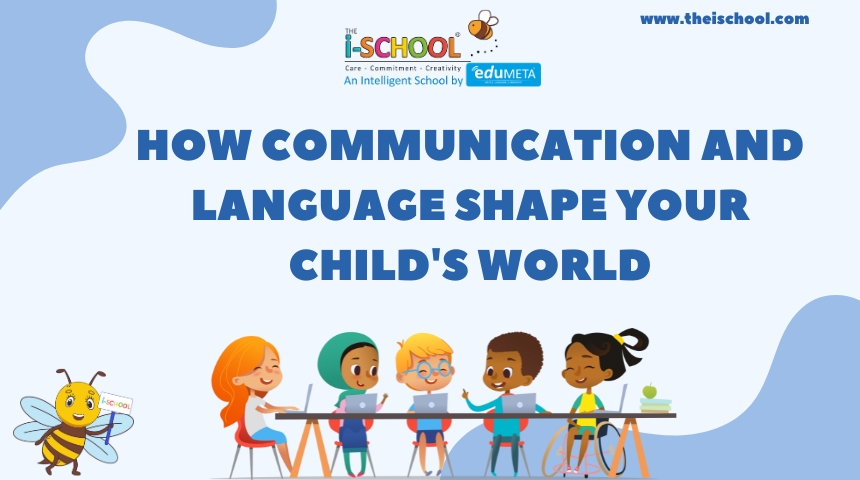How Communication & Language Shape Your Child’s World

Communication is the cornerstone of human interaction, and it starts from the very moment a child enters this world. From the first babble to the formation of complex sentences, language plays a pivotal role in shaping a child’s understanding of the world around them. In this blog, we’ll explore how communication and language profoundly impact your child’s development and worldview.
Early Connections:
Even before a child can speak, they are absorbing language like a sponge. Babies listen to the intonations and rhythms of their caregivers’ speech, learning to recognize patterns and understand emotions. Through cooing, babbling, and eventually forming words, infants begin to express themselves and connect with others.
Building Blocks of Development:
As children grow, so does their language repertoire. Vocabulary expands, sentences become more complex, and communication skills become more refined. Language development is not just about words; it’s also about understanding gestures, tone, and body language. Through communication, children learn to express their needs, share their thoughts, and navigate social interactions.
Shaping Perceptions:
Language not only allows children to express themselves but also influences how they perceive the world. The words we use to describe things, people, and experiences shape our understanding and beliefs. Positive and encouraging language can boost a child’s self-esteem and confidence, while negative or dismissive language can have the opposite effect.
Cultural Connection:
Language is deeply intertwined with culture and identity. The words we use carry the history, values, and traditions of our communities. By learning language, children also inherit the cultural heritage embedded within it. Through stories, songs, and conversations, children connect with their roots and develop a sense of belonging.
Empathy and Understanding:
Communication is not just about speaking; it’s also about listening and understanding. Teaching children to communicate effectively fosters empathy and compassion. By listening to others and considering different perspectives, children learn to navigate diverse social environments and build meaningful relationships.
Encouraging Communication:
As caregivers, there are many ways we can support our child’s language development. Talking, reading, and singing to your child from an early age can stimulate language skills and foster a love for learning. Engaging in conversations, asking open-ended questions, and actively listening to your child’s thoughts and feelings can also nurture their communication abilities.
Communication and language are powerful tools that shape your child’s understanding of the world and their place in it. From the earliest babble to the formation of complex sentences, every word spoken contributes to their development and worldview. By fostering effective communication skills and nurturing language development, we empower our children to express themselves, connect with others, and navigate the complexities of life with confidence and empathy.
